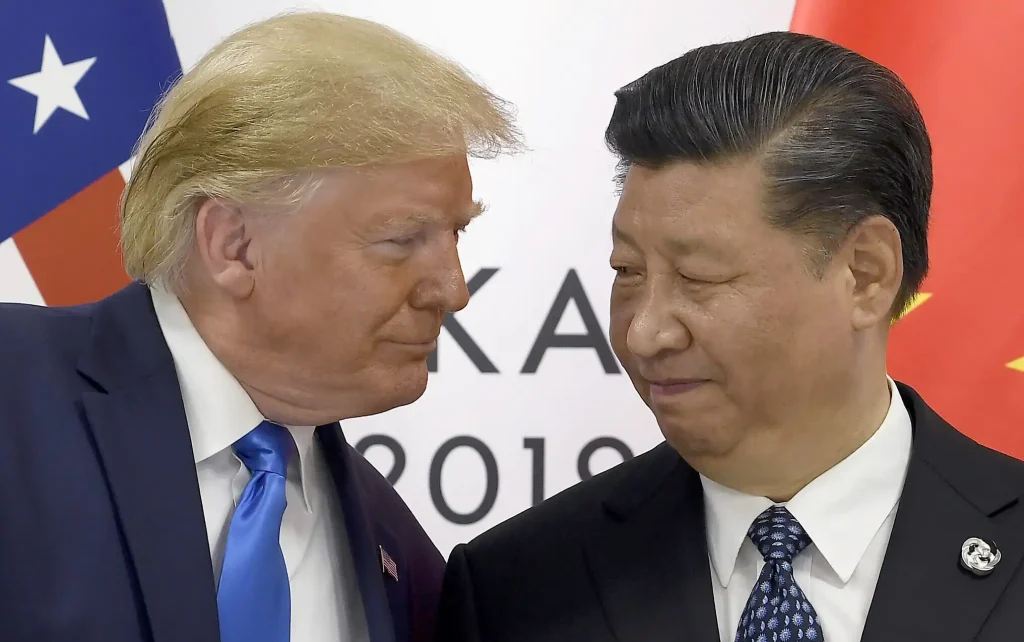On Friday, China announced an increase in tariffs on U.S. goods, raising them from 84% to 125%. This move marks a significant escalation in the ongoing trade war between the world’s two largest economies. The announcement has caused global markets to tremble, sparking concerns about the possibility of a global economic slowdown. The new tariffs, which will go into effect on Saturday, add fuel to an already tense situation.
In contrast, U.S. President Donald Trump temporarily paused tariffs on most countries this week. However, he went ahead and raised tariffs on China to 145%. In response, China has condemned the U.S. decision as “economic bullying” and has promised strong countermeasures. A Chinese Finance Ministry spokesperson stated that the U.S. administration’s continued tariff hikes will go down in history as “a joke in the world economy.” Furthermore, the spokesperson emphasized that China would “resolutely counter and fight to the end” if the U.S. keeps infringing on China’s interests.
China’s Legal and Diplomatic Counteractions
Alongside the tariff hike, China’s Commerce Ministry announced that it would bring another case against the U.S. before the World Trade Organization (WTO). During a meeting with Spanish Prime Minister Pedro Sanchez, Chinese President Xi Jinping stated, “There are no winners in a tariff war.” He added that China had always relied on its own efforts for development and never depended on external favors or feared unreasonable suppression.
China’s Foreign Minister Wang Yi also made strong remarks against Trump’s tariffs, emphasizing that China’s resistance is not just for its own benefit but to protect the interests of the global community. Wang said that China is determined to prevent the world from descending into a “jungle world where might makes right.” He made these comments during a meeting with Rafael Mariano Grossi, Director-General of the International Atomic Energy Agency (IAEA) in Beijing. Wang reaffirmed that China would work with other countries to jointly resist any regressive actions globally.
Global Economic Concerns: Recession Fears Grow
The trade war has caused widespread concern in financial markets, with many economists warning that the U.S. might soon face a recession. Although Trump’s pause of tariffs on most countries offered a brief moment of relief, the ongoing tension between the U.S. and China, the two largest economies in the world, continues to heighten anxieties.
Jennifer Lee, a senior economist at BMO Capital Markets, expressed her concern that the escalating trade war could drive the global economy into a recession. “As the two largest and most powerful countries continue to escalate their tariffs, the risk of a global recession is rising,” Lee stated. “No one knows when this will end.”
Impact of the Tariffs on Both Economies
China’s new tariffs will target key U.S. exports such as soybeans, aircraft and aircraft parts, and pharmaceuticals—products that are among the largest U.S. exports to China. In retaliation, China has already suspended imports of sorghum, poultry, and bonemeal from several U.S. companies. Additionally, China has imposed stricter export controls on rare earth minerals, which are essential for various advanced technologies.
For the U.S., the situation is equally concerning. With tariffs now set at 145%, American consumers and businesses can expect to see price increases on Chinese products such as electronics, industrial equipment, and toys. The new tariffs will directly impact prices, putting a strain on both U.S. consumers and manufacturers.
The U.S. Strategy: Reviving American Manufacturing
Trump’s administration has argued that the tariffs are designed to encourage U.S. manufacturers to bring production back to the country. By making Chinese goods more expensive, the hope is to create more manufacturing jobs within the United States. However, this strategy carries risks. These manufacturing jobs could take years to materialize, and the outcome remains uncertain.
On Wednesday, Trump announced the new 125% tariff on Chinese goods but did not include a 20% tariff linked to China’s role in fentanyl production, a contentious issue between the two nations. While the White House remains optimistic that the tariffs will boost U.S. manufacturing, the long-term effects remain unclear.
Conclusion: An Uncertain Future
As the trade war continues to escalate, the global economy remains on edge. The U.S. and China are digging in their heels, and tariff hikes continue to add fuel to the fire. The potential for a global recession looms larger with each passing day, as no one knows how long this conflict will last or how it will ultimately end.
This trade war, which began as a series of tariff hikes, has now evolved into a full-blown economic standoff between the world’s two most powerful nations. The outcome will have far-reaching implications, not only for the U.S. and China but for the entire global economy. As the situation continues to unfold, the world watches closely, hoping for a resolution that avoids further escalation.












